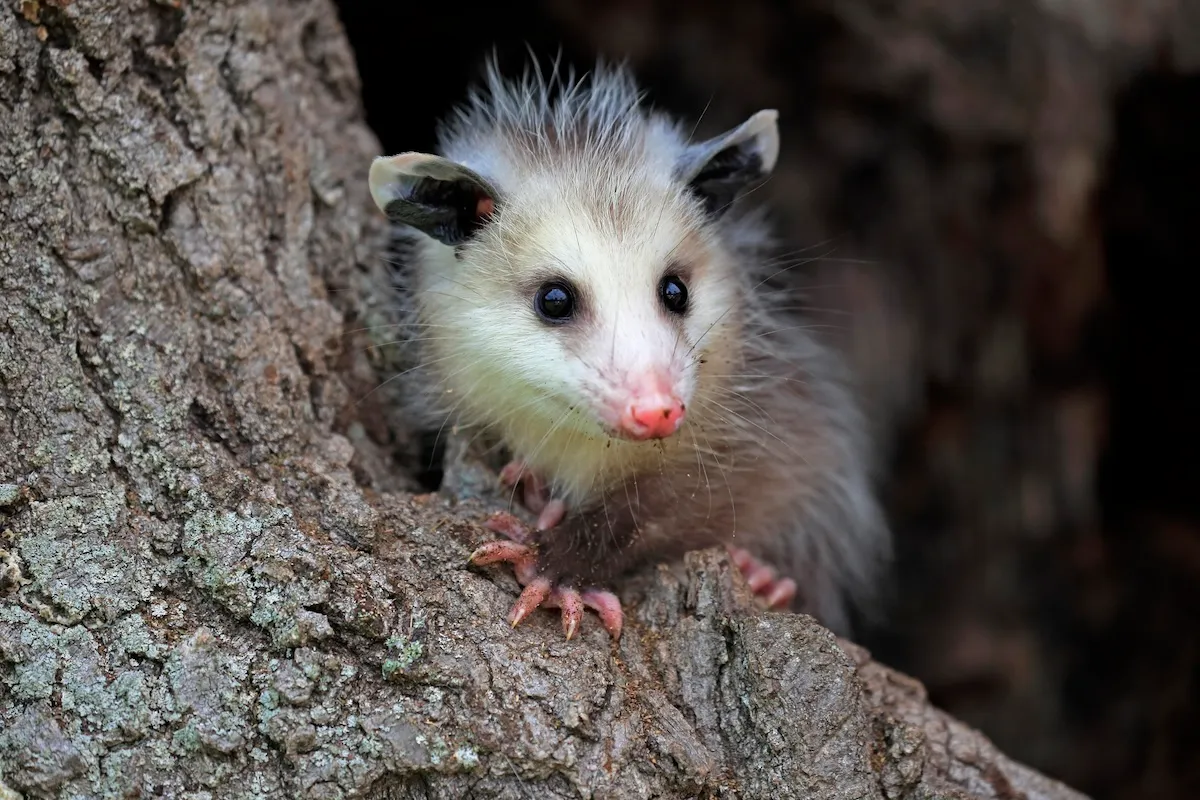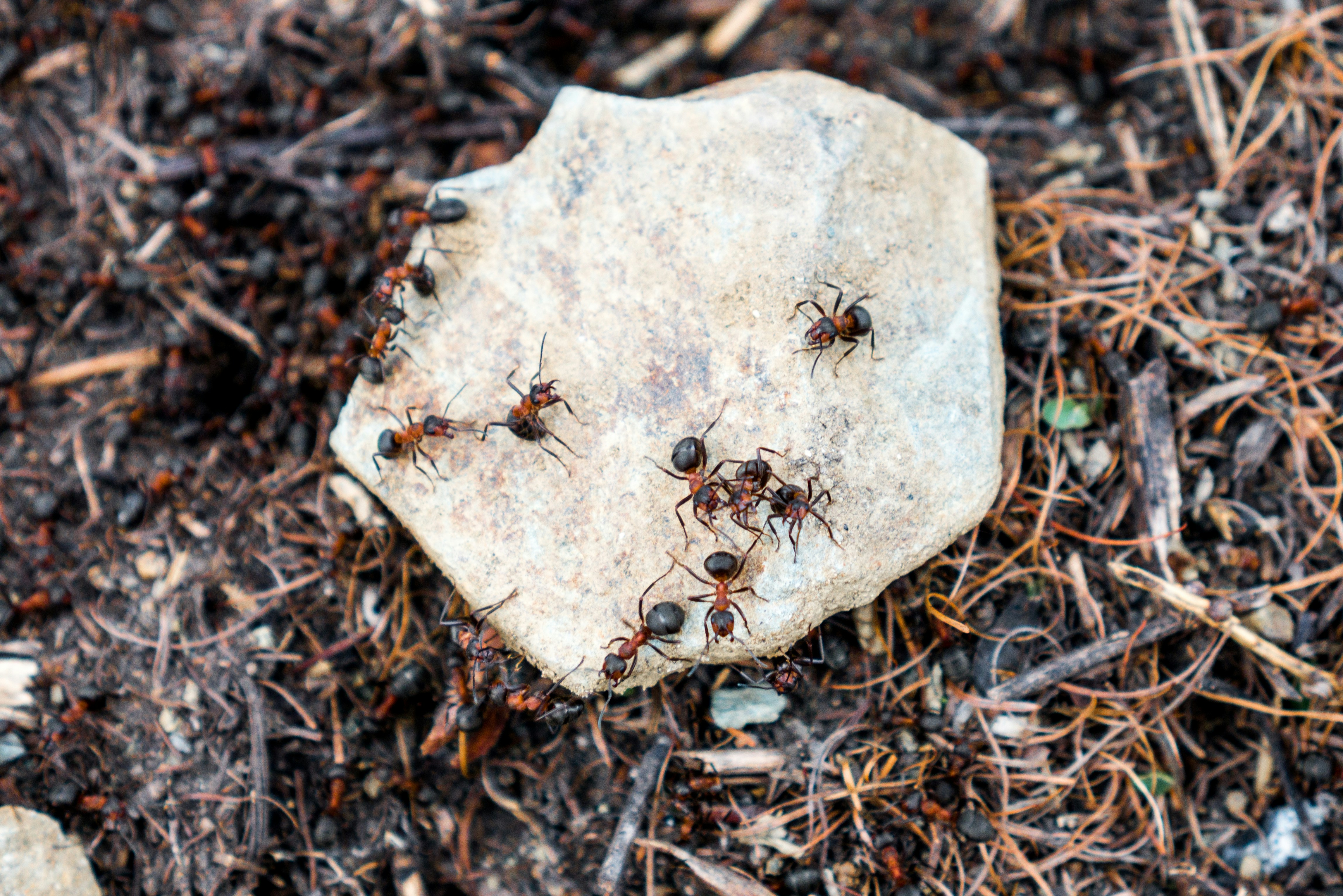

If you love being outdoors, then you’re probably going to head into bug territory at some point on your adventures. Of all the things people say they love about their trips outside, we’re pretty sure bugs and bug bites don’t usually make the list.
Videos by Outdoors
If you’re planning some epic outdoor adventures and want to camp or hike places where insects may flourish, you’re probably going to want some bug repellent. But not all bug repellent chemicals are created equal. There are many alternatives to DEET now, and it’s worth learning what your options are before buying your next bug spray.
Going outside is fantastic, but going home with itchy skin, swollen bite wounds, and sore dots all over your body is not the way to go. Bug repellents don’t have to be chemical-based, either, if that’s your qualm. We’re going to cover plenty of natural bug spray options to repel mosquitoes and other gnawing gnats.
Our top pick is Coleman Botanicals. It repels bugs through natural oils, goes on easily, is light and not greasy, and it also works great for kids.
We’ve also got picks for the best lotion to protect you against bugs, the best candle repellent, the best repellant for families and kids, the best DEET option, and more.
This post contains affiliate links. Outdoors.com may earn a commission when you make a purchase through these links. Thank you for your support.
7 Best Bug Repellents
- Best Overall: Coleman Botanicals
- Best Lotion: OFF! Botanicals Insect Repellent Lotion
- Best Aerosol for Sensitive Skin: Coleman Skin Smart
- Best Candle Repellent: Coleman Citronella Outdoor Lantern
- Best DEET Repellent: Cutter Backwoods
- Best Towelettes: Avon Skin So Soft Bug Guard Plus Picaridin Towelettes
- Best for Families: OFF! FamilyCare Clean Feel
Best Overall: Coleman Botanicals
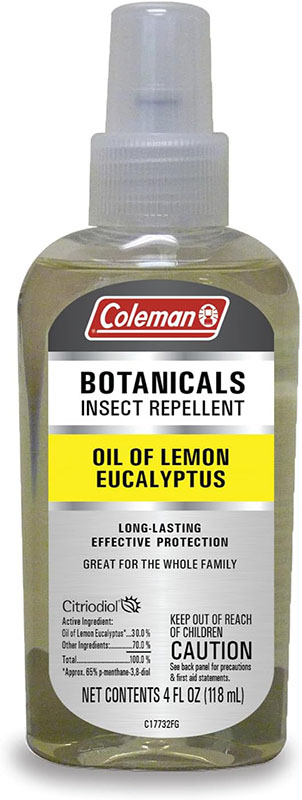
Specs:
- Active ingredient: Lemon eucalyptus oil/PMD
- Type:Spray
Coleman Insect Repellent Spray is a plant-based solution, utilizing lemon eucalyptus oil to repel bugs without the use of DEET, making it an excellent nature-derived bug spray option. It is made directly from the oil of Eucalyptus citriodora trees. It’s also referred to as PMD.
It’s a good option for families that protects against both ticks and mosquitos. It’s not greasy and goes on easily without being heavy or sticky.
This bug spray is effective against disease-carrying insects that may carry Zika, Dengue, Chikungunya, and West Nile virus. For a natural option, it’s extremely effective and lasts for a long time—up to six hours. Some natural bug sprays must be applied more frequently, so we appreciate that you don’t have to apply this over and over.
The oil of lemon eucalyptus is an eco-friendly approach to insect repellent, and we prefer that to repellants that mainly use DEET concentration as protection. This natural repellant protects without having to worry about any DEET side effects or smells. DEET-free insect repellent provides great protection and the peace of mind of using a plant-based bug spray.
Best Lotion: OFF! Botanicals Insect Repellent Lotion
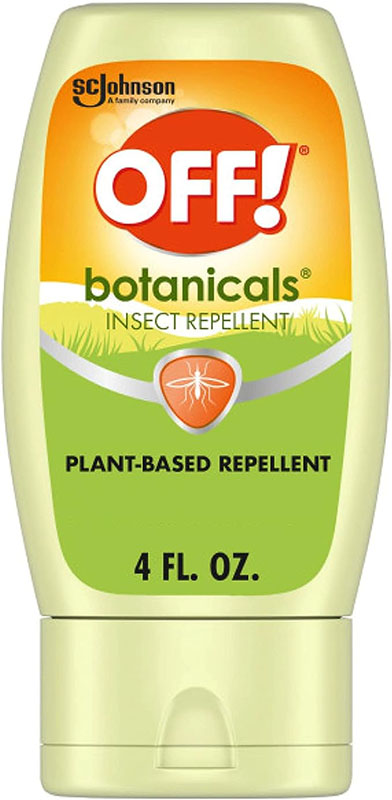
Specs:
- Active ingredient: Lemon eucalyptus oil/PMD
- Type:Lotion
OFF! Botanicals uses a repellant that naturally occurs in the lemon eucalyptus plant. The oil is extracted to create an ingredient that protects against bugs.
This all-natural alternative is safe to use on your skin, but be wary that the oils do irritate certain sensitive skin types. The lotion provides a soothing aspect and the cream does state that its protection time is only two hours. It doesn’t have fragrances or dyes, so it won’t itch or be sticky.
It has a mostly water-based formula, but roughly half is the oil of the lemon eucalyptus tree. It works to repel mosquitoes, black flies, gnats, and no-see-ums. It may not be effective for ticks, as it doesn’t say.
What makes this stand out is the lack of smell and sticky or greasy texture that other repellents may have when applied. The lotion goes on well, is easy to apply, and also provides moisturization. It’s a better option for people who hate aerosol sprays and prefer to use something that isn’t sticky or bothersome.
Best Aerosol for Sensitive Skin: Coleman Skin Smart

Specs:
- Active ingredient: IR3535
- Type: Aerosol spray
Coleman Skin Smarts uses IR3535 as its active ingredient—a synthetic chemical compound that interferes with the insect’s ability to detect human skin odors. It works to protect against many biting insects, including mosquitoes, ticks, and flies. It has a very mild odor and low potential for skin irritation, making it good for those with sensitive skin.
Coleman SkinSmart Insect offers up to eight hours of protection and is safe to use on toddlers and children. We like that this is a spray, so it makes it easy to apply on kids (of course, don’t let them breathe in as you spray). When you’re on the go, it can be faster to just quickly spray those ankles and necks. It works very well to prevent bug bites and is a nice alternative to the extremely powerful chemical of DEET.
When you spray it on, it’s not greasy and feels lightweight on the skin. For those who want the convenience of a spray but want to skip out on the botanical options or the power of DEET, this spray is a great middle ground.
Best Candle Repellent: Coleman Citronella Outdoor Lantern
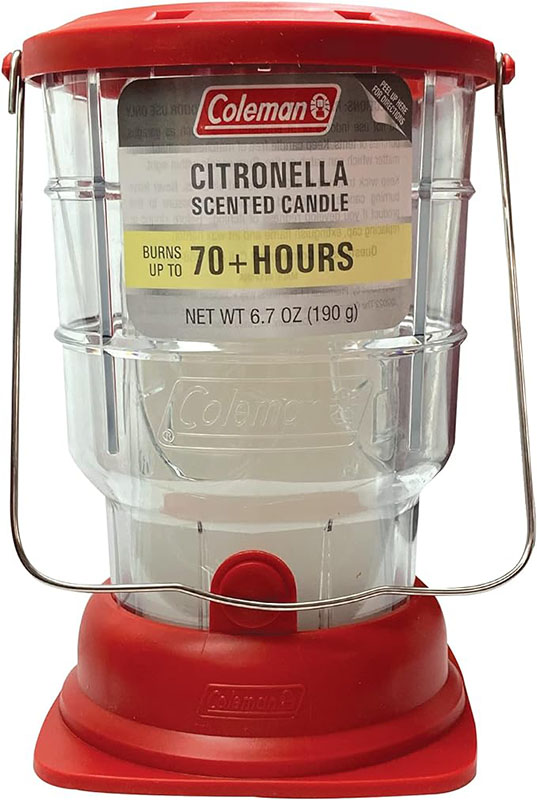
Specs:
- Active ingredient: Citronella oil
- Type: Candle
If you’re camping or sitting outside and don’t want to put on bug spray before bed, you may want to use a candle. The Coleman Citronella Lantern is great because it also provides light while keeping bugs away. It lasts for a very long time, up to 70 hours or more, so if you are home, you can use it again and again.
Citronella is thought to be less effective than other repellents and may cause reactions in humans when applied to skin, but it’s a great solution in a candle. So, if you hate putting spray or lotion on your body, consider this option.
The lantern is a nice bonus on top of the bug protection that makes it easy to get protection against bug bites if you are car camping or sitting around a campfire. Citronella candles are easy to use and just require a match or lighter, and then you have bug protection right away.
You can blow out the candle when you’re done and close the lid, making it reusable and protecting it against rain. It’s a great choice if you want both light and bug protection at night.
Best DEET Repellent: Cutter Backwoods

Specs:
- Active ingredient: DEET
- Type: Aerosol spray
If you’re look for easy, powerful bug protection, then DEET is the way to go. Cutter Backwoods repellent is going to protect you very well against any bugs. It lasts a really long time, up to 10 hours, and this aerosol spray is also sweat-resistant, so you shouldn’t need to apply it more than once, even when it’s really humid and hot outside.
Cutter Backwoods has a 25% DEET formula that will protect against the most common insect-borne illnesses such as Zika, West Nile, Dengue, and Chikungunya viruses, and it can ward off ticks. It protects against insects that are just a pain, too, like biting flies, gnats, no-see-ums, chiggers, and fleas.
You need to use this product outdoors and spray it about eight inches away from your body and clothes. You should never inhale the spray, and DEET does have a hefty smell that lingers.
There are downsides to DEET like irritation, watery eyes, redness, rash, and swelling, and there have been some toxicity concerns, too. However, many of these concerns are less impactful than the potential impacts of catching bug-borne diseases.
Best Towelettes: Avon Skin So Soft Bug Guard Plus Picaridin Towelettes
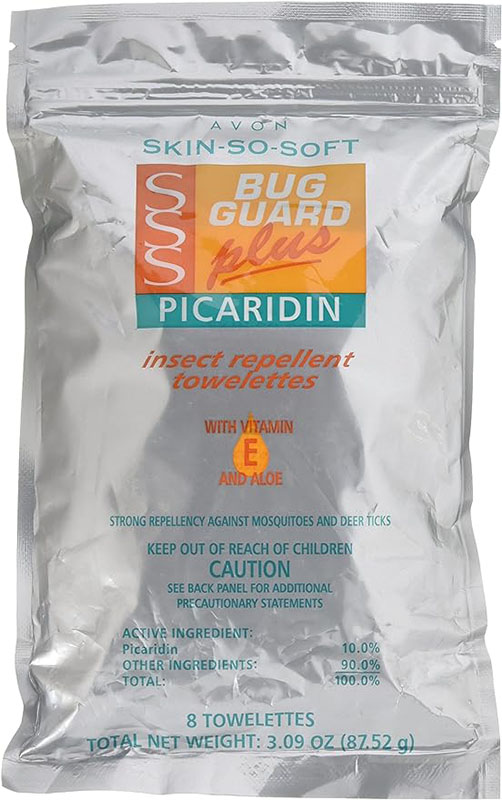
Specs:
- Active ingredient: Picaridin
- Type:Towelette
Towelettes can be preferable if people don’t want to rub in spray bug repellant, or if you want something lighter and easier to carry in your bag. Skin So Soft uses picaridin in these towelettes, which is more gentle on the skin than DEET but is still a powerful insect repellent that can protect against mosquitoes, ticks, and other biting insects.
Skin So Soft Bug Guard adds some sensitive-skin-friendly ingredients like vitamin E and aloe, and they intentionally designed these to be gentle enough for kids as well as grown-ups. It’s best not to use these on kids under the age of six months, though.
Packing towelettes is easy, and you can throw them in your camping kit or hiking bag if the bugs start to come out. The protection time is “up to eight hours,” and if you buy the big pack, you can reseal the bag.
Best for Families: OFF! FamilyCare Clean Feel

Specs:
- Active ingredient: Picaridin
- Type: Spray
Getting your kids to put on insect repellent can be a huge hassle, especially if it involves lotions or smelly DEET. We love the OFF! FamilyCare because it goes on easily with the pump spray; you can put it on your clothes and on your skin.
It uses picaridin instead of DEET, which is better for children and families but still repels insects, ticks, and chiggers. The “clean feel” means it’s not greasy and won’t feel slimy, super thick, or oily when you wear it, which is generally better for kids who can’t tolerate certain textures on their skin.
It has a bit of an odor at first, but it doesn’t smell once it has dried, so it’s less bothersome with its minimal odor. Kids will hardly notice that they’re wearing it, which is definitely the bonus of this family-style repellant.
Buyer’s Guide: How to Choose Insect Repellents
The main difference between bug-repellant choices is usually the active ingredient. Some people want to find something that is non-toxic and prefer a natural repellant. Others don’t want to wear something on their body, so they prefer a candle, bug zapper, or clothing that keeps bugs away.
Active ingredients in repellents include DEET, picaridin, IR3535, or oil of lemon eucalyptus. Each has its benefits and considerations. DEET is the strongest, but picaridin is odorless and less greasy, while oil of lemon eucalyptus is a natural option, but it may not last as long or work as effectively.
People use repellant for many different reasons. You may want to prevent annoying bites, or perhaps you are concerned about disease-carrying pests. The bugs that frequent your home or destination will be the main concern. If you want protection against mosquitoes, ticks, or other insects, some repellents are specialized for specific pests.
People who have sensitive skin will probably need to look for fragrance-free or hypoallergenic formulas.
Types of Insect Repellent
- Sprays
- Lotions
- Wearable devices
- Repellent clothing
- Bug zappers
- Candles
When people think of bug repellant, they are usually envisioning a spray. Some people may find the aerosol fumes irritating, but it’s quick and easy.
Lotions and creams are often preferred by individuals with sensitive skin. Creams tend to last longer, but they can feel less greasy than spray alternatives. They are less comfortable when it’s humid and may require you to reapply them. They also tend to leave a residue on clothes, so be aware of that.
Wearable insect repellent devices, such as wristbands or clip-on devices emit repellent substances, such as citronella or geraniol, but they are generally less effective.
Insect-repellent clothing offers a convenient and long-lasting solution for protection against biting insects. These garments are treated with insecticides, such as permethrin, which effectively repel mosquitoes, ticks, and other pests. The treatment remains effective through multiple washes. Clothing is particularly beneficial for outdoor activities where insect exposure is high, such as hiking, camping, or gardening, and is a nice alternative to having to place repellent chemicals on your skin.
Insect Bites and Diseases
Protection against bug bites can also mean protection against certain bug-borne diseases. Tick bites—more specifically, the tick-borne illnesses from deer ticks bites, like Lyme disease—are a major concern for people who want to venture to forests and wooded areas or who camp in places that have lots of ticks or mosquitoes.
Vector-borne diseases like malaria, dengue fever, Zika virus, Lyme disease, and West Nile virus are carried through bugs. If you’re concerned about protecting yourself or your family against these types of illnesses, then bug repellent is a good idea.
Active Ingredient Options in Bug Repellents
- Picaridin
- DEET
- Botanicals
- Oil of Lemon Eucalyptus
- Permethrin
- IR3535
We found that picaridine is an effective repellent chemical similar to DEET that has no major drawbacks. Repellents that contain 20% picaridin have comparable effectiveness to DEET. Picaridin is an effective insect repellent similar to DEET but does not have a strong odor and is not greasy. It provides long-lasting protection against various insects without causing skin irritation.
Products made from botanical extracts can also be helpful. While botanical ingredients are thought to less effective, some products like Coleman Botanicals have long-lasting protection and prevent bites from insects that pass along a bug-borne disease.
People may be sensitive to the concentration of lemon eucalyptus oil if applied directly to the skin, so always check for irritation in a small area of skin before applying all over. The only natural ingredients recommended by the CDC are oils of lemon eucalyptus, which has been licensed by the U.S. Environmental Protection Agency and gone through effectiveness tests against tick-borne diseases and other insects carrying diseases.
Less Desirable Repellent Options
Ineffective repellent options include bug zapping. This is unproductive and costly, and it can attract more mosquitoes and kill beneficial insects. Yard bug treatments are not effective in maintaining protection, as pesticides and insecticides are dangerous and kill off useful species.
Candle repellants are less effective than repellants, but they do work.
DEET-Based Products
DEET is safer than you might think. It has a history of being effective in reducing bites and causing little to no danger. Since it has become available for use, DEET toxicity has been rare. However, there is some concern about the possible neurotoxic effects of DEET in children, and it must never be inhaled.
What to Use If You’re Pregnant
The EWG advises pregnant women to avoid exposure to chemical substances during pregnancy. It’s best not to travel to areas with insect-borne illnesses while pregnant.
The CDC also advises pregnant women not to use oil of lemon eucalyptus (PMD) and for families to avoid using it on very young children. They recommend a repellent with picaridin at a 20% concentration or DEET at a 20-30% concentration instead. Clothing manufactured with tightly woven material can also be helpful for sun and mosquito protection.
Frequently Asked Questions
What is the most powerful insect repellent?
The most effective insect repellent available is usually DEET. DEET disrupts an insect’s ability to detect a human, so they can’t locate you as a target. Products containing DEET work against a variety of insects, including mosquitoes, ticks, and biting flies.
DEET is highly effective, but make sure you don’t inhale it as you spray or spray it too close to your body. It can be toxic, so avoid applying it to damaged skin or near your eyes and mouth. Some people have skin irritations or other reactions to DEET, so it’s always a good idea to test it on a small area of skin first.
What type of insect repellent is best?
Plant-based repellents like oil of lemon eucalyptus provide effective protection against mosquitoes without using chemicals and are good options for people who want a more natural repellant.
People with sensitive skin may prefer DEET-free repellents containing picaridin. Picaridin is more gentle on the skin but still protects well against mosquitoes and ticks.
Outdoor lovers who hang out a lot in heavily infested areas might find permethrin-treated clothing a handy option, as it’s a nice layer of defense against ticks and other biting insects without having to spray anything directly on your skin.
What is the best thing to keep bugs away?
Long sleeves are a great start to keeping bugs away. You can also keep bugs away by using insect repellents containing DEET, picaridin, or oil of lemon eucalyptus.
Wearing long-sleeved clothing and pants treated with permethrin and/or avoiding areas with stagnant water or dense vegetation where insects breed can also help to prevent bug bites.
You can use mosquito nets while sleeping outdoors and avoid being outdoors during peak mosquito activity times to keep bug bites to a minimum. Using citronella candles is another way to keep bugs away without having to put anything on your skin.
Which is better, DEET or picaridin?
DEET and picaridin are both very effective insect repellents. DEET has been used for longer and is known to be effective against a wide range of insects, including mosquitoes, ticks, and biting flies. It typically is recommended to use if you are traveling or outdoors in areas with a high risk of insect-borne diseases.
But since some people may experience skin irritation or other adverse reactions with DEET, picaridin is preferable. Picaridin is better if you have sensitive skin or are concerned about potential skin irritation or greasiness. It’s been proven effective protection against mosquitoes and ticks and is odorless, making it more comfortable to wear.
What repellant can I use if I’m pregnant?
If you’re pregnant, it’s essential to choose an insect repellent that is safe for both you and your baby. In general, repellents containing DEET and picaridin are considered safe to use during pregnancy when applied according to the instructions on the label.
Consider using insect repellents with lower concentrations of active ingredients and taking other preventive measures, such as wearing long-sleeved clothing and using mosquito nets to minimize your exposure to bug bites.
What repellant can my kid use if she/he has sensitive skin or allergies?
For children with sensitive skin or allergies, it’s best to choose an insect repellent that is gentle and unlikely to cause irritation, like OFF! FamilyCare Clean Feel. Repellents containing picaridin or oil of lemon eucalyptus are good options as they are less likely to cause skin irritation compared to DEET.
Test any repellent on a small patch of skin before applying it everywhere, especially if your child has known allergies or sensitivities. Products specifically formulated for children often have lower concentrations of active ingredients and are designed to be gentle on the skin.
Do repellents stop ticks?
Repellents can help deter ticks from biting. Insect repellents containing DEET, picaridin, or oil of lemon eucalyptus are effective at repelling ticks when applied to exposed skin and clothing. Clothing with permethrin can provide further protection against ticks. It’s best to also avoid wooded and brushy areas with high grass and to wear long-sleeved shirts and pants. Also, make thorough tick checks after spending time outdoors if you go to an area where ticks inhabit.
Does treated clothing keep ticks away?
The Centers for Disease Control and Prevention suggests using permethrin-treated clothing to prevent tick bites. Permethrin-treated clothing offers durable protection against ticks by forming a barrier on fabric fibers that repels ticks on contact. However, permethrin can be neurotoxic and is carcinogenic to humans if inhaled, but not otherwise.
It’s also very toxic to our surroundings, especially for fish. Permethrin is a pyrethroid that can be inhaled, ingested, or absorbed through the skin. Depending on the formulation, permethrin is a non-toxic to moderately toxic pesticide. Short-term side effects in sensitive individuals include eye, skin, nose, and throat irritation and may also include breathing problems.
Final Thoughts: The Best Bug Repellent
Choosing the best bug repellent is like choosing the right sunscreen; they are all pretty effective, but what your skin likes and what you like tend to be the most important parts of making a choice.
Looking for bug repellants that help protect against the bugs in the specific area you are venturing to is going to be important when making a decision. Next, it’s a great idea to test some out on your skin or choose a repellant that is not topical by choosing clothing or a candle instead.
You’ll want to make sure that you consider the chemical or active ingredient to make sure it aligns with your health concerns.
Our top pick for the best all-around bug repellent is Coleman Botanicals. It’s easy to put on, repels bugs, doesn’t have a strong odor, isn’t greasy, and can be used on your entire family. We prefer this to a DEET or other chemical repellents, as it offers peace of mind and bug protection all in one.
Whether you’re gearing up to protect yourself in the woods or a vacation in the tropics, you can’t go wrong with one of our picks for the best bug repellants.
